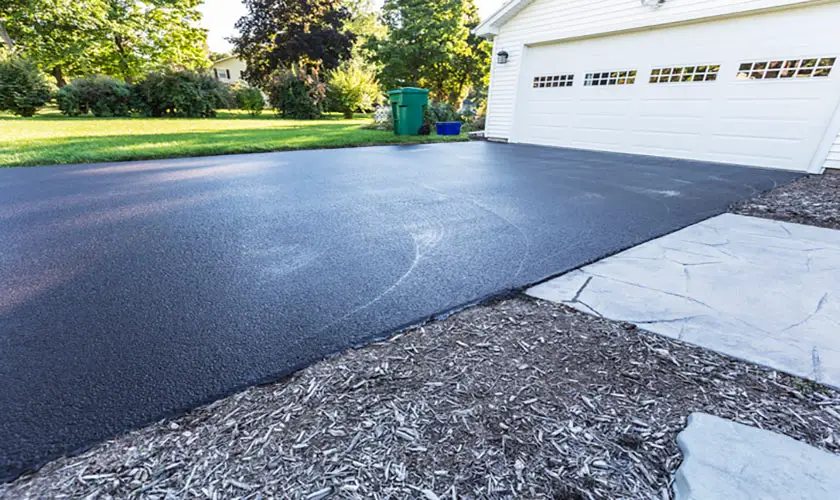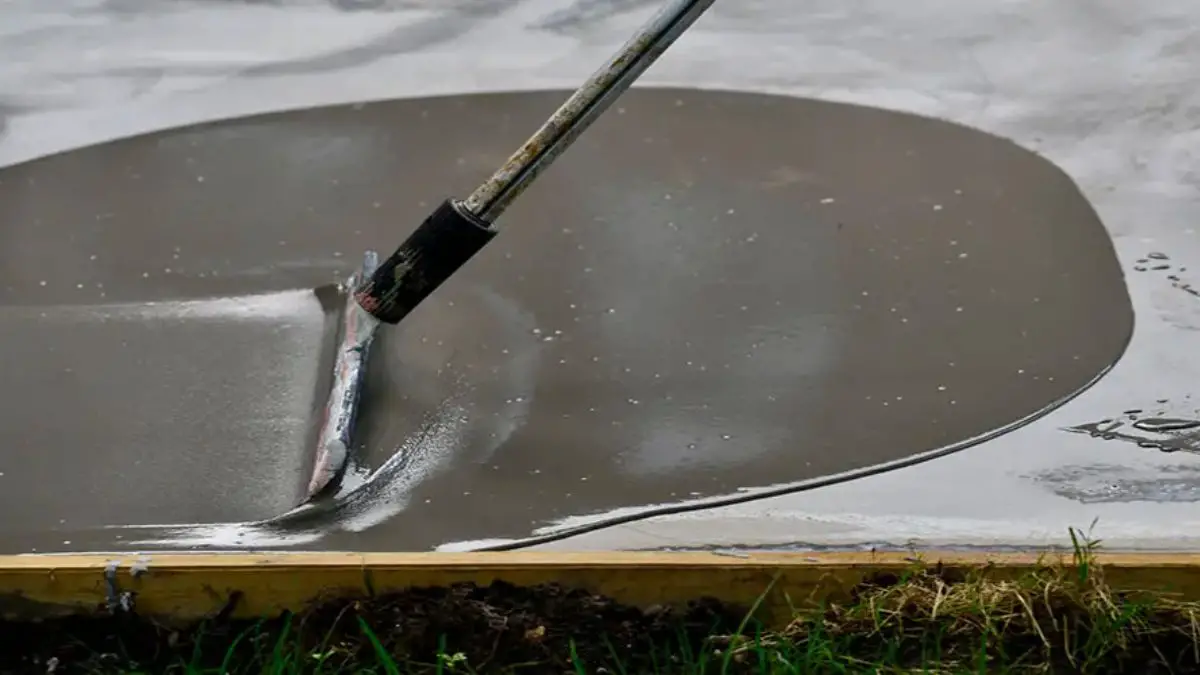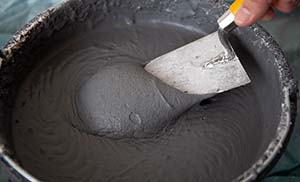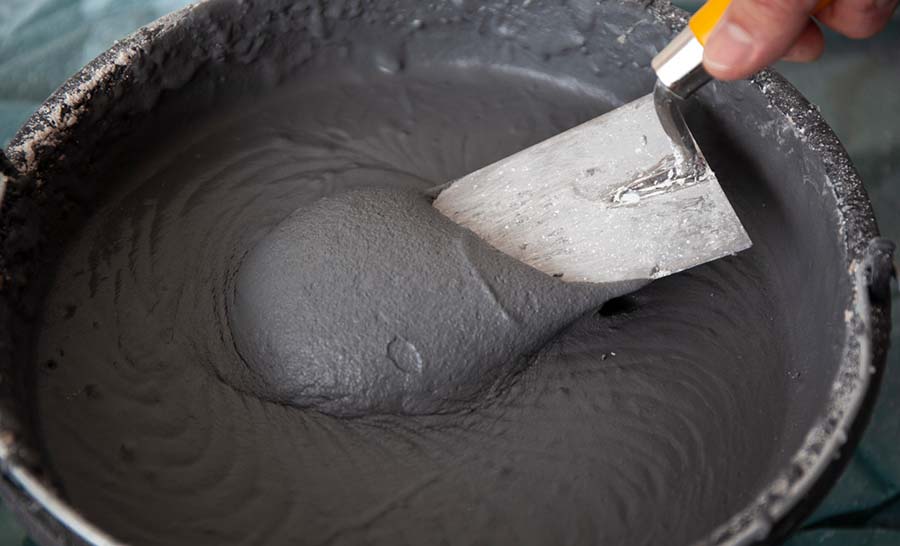
Many building projects call for the application of a fresh coat of mortar to an older surface. Mortar can bond with most surface types, but what if that surface is concrete? Will mortar adhere?
Here’s what I learned from working as a home inspector for more than a decade:
Mortar will stick to concrete. However, you must prepare the concrete surface first for adhesion to occur by ensuring it is even, free of dirt, and slightly damp. Applying a scratch coat to the concrete surface will help the mortar stick better. For even better results, you can use Thinset mortar.
But that’s just the tip of the iceberg. There’s more to know about applying mortar to concrete. And I’ll also share a few effective ways to get the mortar to stick to concrete. Read on for some valuable tips.
Will Mortar Bond to Concrete?
Mortar will bond to concrete only if follow the proper procedures. Mortar mix does not readily bond to old concrete surfaces, and that’s why it’s necessary to prepare the surface beforehand.
The first and most crucial step is making sure that the concrete surface is clean. Removing any old paint, oils, dirt, rust, or stains is crucial to creating a surface that mortar will bond to. The idea is to not have any other material in between the mortar and the concrete.
To make this happen, here are a few tools you can use:
- Chisel – If the concrete surface has stubborn stains, a chisel is effective in removing them. You can also use it to even out the surface before putting in the scratch coat.
- Hose – To save time, you can also use a hose to spray down the concrete. A few rounds of spraying should help you do away with dirt and stain.
- Power Washer – Out of these three tools, the power washer is what I recommend. Aside from saving time, it’s does the best job out of the bunch. It can clean hard-to-reach surfaces and take care of both liquid and solid stains.
How Do You Get Mortar to Stick to Concrete?
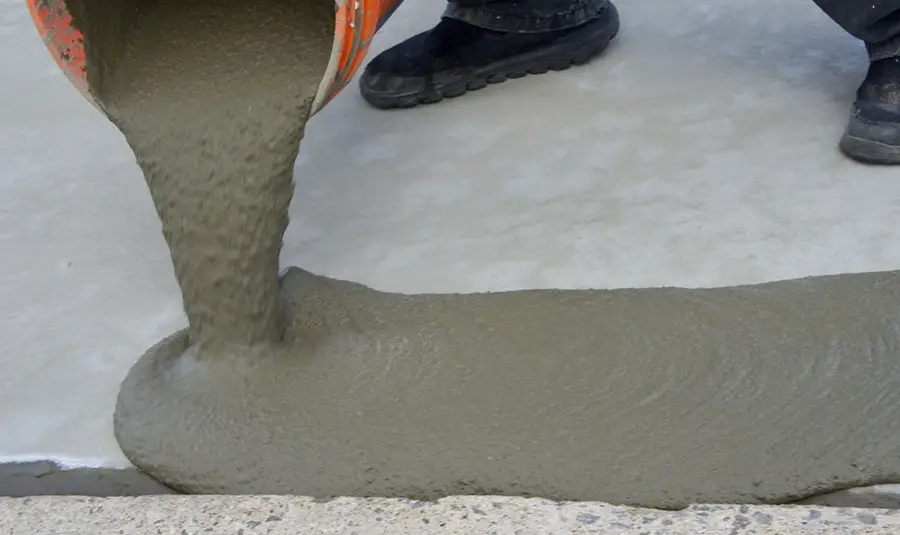
There are two ways to get the mortar to stick to concrete effectively:
1. Apply a “Scratch Coat”
A scratch coat is simply an extra watery, “soupy” mixture of the mortar with which you wish to cover the concrete.
Once you’ve mixed up some of this “scratch coat,” apply a thin layer to the concrete you wish to cover. Wearing a pair of rubber gloves, you can use your hands to apply the watery mixture.
The scratch coat will help the concrete stay wet so that you can apply the mortar. You will want to work quickly as the drier the concrete becomes, the more it will draw moisture from the mortar. If the mortar becomes too dry too quickly, it will compromise the bond.
2. Use a Mortar Specialty Product
You can also opt for Thinset instead of regular mortar. Thinset, while also sometimes referred to as a “mortar,” is an adhesive and classified as a mortar specialty product. It’s a mix of cement, water, fine sand, and an agent for water retention, such as an alkyl derivative of cellulose.
You should apply Thinset in small amounts, as it dries very quickly, and you should never wash it down your drain.
Will Mortar Stick To Damp Concrete?
Mortar will stick to damp concrete. Actually, concrete must be wet for the mortar to stick to it.
It will be hard for the mortar to stick to your concrete if it lacks moisture. That is why it’s advisable to apply a scratch coat first for the two surfaces to bond easily.
If the concrete surface you are working with is dry, it will draw all the moisture from the mortar mixture you are applying. If you are not using a scratch coat on the concrete, be sure to keep the surface wet. It is a good idea to have your hose nearby so that you can keep the concrete surface wet as needed.
Does Mortar Harden Like Concrete?
Mortar does not harden like concrete, as it is not as strong. Typically used as a bonding agent, mortar does not dry to the same strength as concrete, a common building material.
Due to its strength and durability, concrete is used for support structures and should not be replaced with mortar, as they are not interchangeable.
Here is a brief comparison of the two materials:
| Mortar | Concrete |
|---|---|
| A mixture of water, cement, and sand | A combination of water, cement, sand PLUS gravel, and other aggregates |
| Higher water to cement ratio | Lower water-to-cement ratio |
| Thicker consistency | Thinner consistency than mortar |
| Used to construct and repair brick, block, and stone structures | Used for structural support of a building, steps, sidewalks, and setting posts |
Although both concrete and mortar contain cement and sand, adding gravel and other aggregates makes concrete stronger than mortar. Although mortar is thicker in its consistency than concrete, it only performs as a bonding agent and will not stand up for structural use.
What Will Stick to Concrete?
Wood and some types of plastic will stick to concrete.
Often wood forms are used to construct concrete walls. The wood needs to be treated with an oil-based product to avoid having the concrete stick to the forms.
This treatment will create a coating that will act as a barrier between the wood and the concrete, allowing easier separation once you remove the wood forms.
Although wood will stick to concrete, building a structure from these two materials is not ideal as the adhesive bond may not be long-lasting.
Some types of plastic will also stick to concrete. HDPE or High-Density Polyethylene is a type of plastic that sticks to concrete. Buckets are often made from this type of plastic.
If you are using such a bucket for your concrete project, coating the plastic with an oil-based release agent will prevent concrete from sticking and becoming dry. This will save your bucket and the tools that you are using.
Not all plastics will stick to concrete. If the plastic contains rubber or silicone, it won’t stick as much.
Several materials will not stick to concrete. They include; painted surfaces, dirt or dust, wax, oil, or surfaces coated in a release agent. You can find many of these materials on old concrete surfaces. That is why removing them before applying mortar is so essential.
Final Thoughts
Even though mortar and concrete are very similar in their composition, the mortar mix will only stick to concrete if damp.
In addition to keeping your concrete wet while applying mortar, be sure to clean your concrete surfaces well to ensure a successful project.
Using a scratch coat is also advisable to aid in the adhesion of mortar to concrete. Wood can also bond with concrete provided that you prepare both surfaces well. For satisfactory results, hiring a professional is still the best way to get the job done.
Sources
- GROUT, MORTAR, AND THINSET: WHAT’S THE DIFFERENCE?
- FAQs – Rapid Set® MORTAR MIX
- Construction for Beginners: What is the Difference Between Mortar and Concrete?
- GUIDE TO CONCRETE ADHESION


